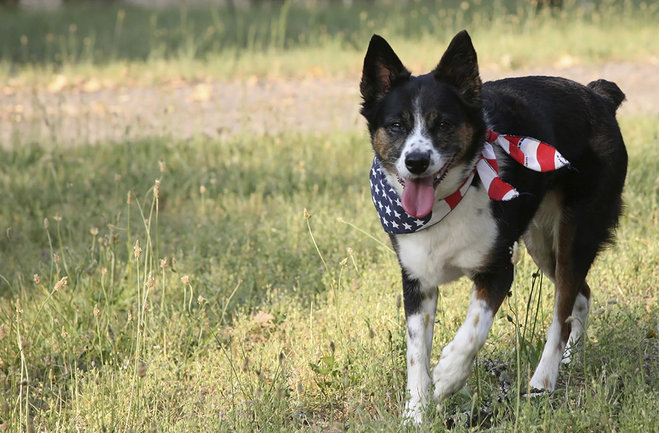By BluePearl Veterinary Partners
SEATTLE – The patient care team at ACCES (A BluePearl Veterinary Partners) specialty and emergency hospital for pets in Seattle and Renton is encouraging pet parents to include their pets when making family disaster plans. The Federal Emergency Management Agency (FEMA) is sponsoring America’s PrepareAthon! on Sept. 30, as part of the federal government’s National Preparedness Month. The event is meant to motivate individuals, organizations and communities to prepare in advance for natural disasters like earthquakes, floods, hurricanes, tornados, wildfires and winter storms.
“Disasters can happen with little notice and be devastating. But being prepared can save your life or that of your family members — including your pets, ” said Amanda McNabb, emergency clinician with ACCES in Seattle, Washington, and a member of the WSDA Reserve Veterinary Corps. “That’s why we strongly recommend pets be included in your disaster preparedness plan.”
Here are some tips recommended by the ACCES team:
CREATE AN EMERGENCY KIT FOR YOUR PET BEFORE A DISASTER
- Keep current documentation of your pet’s medical records and vaccination history in the emergency kit.
- Include your pet’s license information.
- Have a current photograph of your pet in the kit.
- Keep a checklist in the kit of items to pull together when a disaster is imminent, including these:Have an evacuation strategy: Have a list including addresses and phone numbers of specialized pet shelters, animal control shelters, veterinary clinics, and friends and relatives out of harm’s way who are potential refuges for your pet during a disaster. Familiarize yourself with the location of each so if you need to evacuate, you can plan your route accordingly.
- Collar: Make sure your pet’s collar has an identification tag with your contact information.
- Leash: Use a leash if you evacuate or bring your pet to a shelter because pets can become easily disoriented if they slip away from you.
- Carrier: Have a properly sized pet carrier for each animal handy. Carriers should be large enough for the animal to stand and turn around.
- Medications: Have a two-week supply of medications and care instructions to bring with you.
- Food: A two-week supply of food should always be kept on-hand in case of an emergency.
- Other: Make a list of other items to add at the last minute such as food, bowls, can opener, cat litter, water and cleaning supplies.
DURING A DISASTER
- Gather together in one place all items on your pet’s emergency checklist. A laundry basket is easy to carry and a good size for this purpose.
- Animals brought to a pet shelter may be required to have any or all of the following:Pet shelters will be filled on first come, first-served basis. Call ahead and determine availability.
- Leash and collar with identification tag
- Rabies tag
- Identification on all belongings
- Suitable carrier or cage
- Ample supply of food, water and food bowls
- Necessary medications and specific, written care instructions
- Newspapers, trash bags and other supplies for clean-up
- Bring pets indoors well in advance of a storm. Reassure and calm them throughout.
- Monitor your pets’ behavior, because animals can become defensive or aggressive due to the stress of the situation.
AFTER A DISASTER
- Walk pets on leashes until they become re-oriented to the area. Familiar scents and landmarks may be altered and pets could easily be confused and become lost. Also, downed power lines, debris, snakes and other critters brought in with high water can all pose a threat for animals after a disaster.
- If your pet is lost during a disaster, contact your local animal control office to find out where lost animals are being housed. Bring along the picture of your pet and information about the microchip.
About Us: ACCES (A BluePearl Veterinary Partners Hospital) serves the Puget Sound region by offering the highest quality specialty, critical care, emergency medicine and specialty services to veterinarians and their clients 24-hours a day/365 days a year at locations in Seattle and Renton. For more information on ACCES, please visit criticalcarevets.com.
BluePearl Veterinary Partners employs 1,800 team members including more than 450 veterinarians. BluePearl hospitals offer referral-only, specialty care services and most offer 24-hour emergency care. BluePearl does not provide primary care. The company is one of the world’s principal providers of approved veterinary residency and internship programs. BluePearl also participates in clinical trials that investigate the effectiveness of new veterinary drugs and treatments, providing pet families access to cutting-edge medicine that is not yet commercially available. BluePearl is headquartered in Tampa, Fla. For more information on BluePearl Veterinary Partners, please visit bluepearlvet.com.

